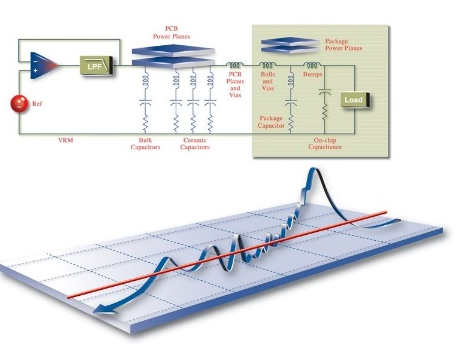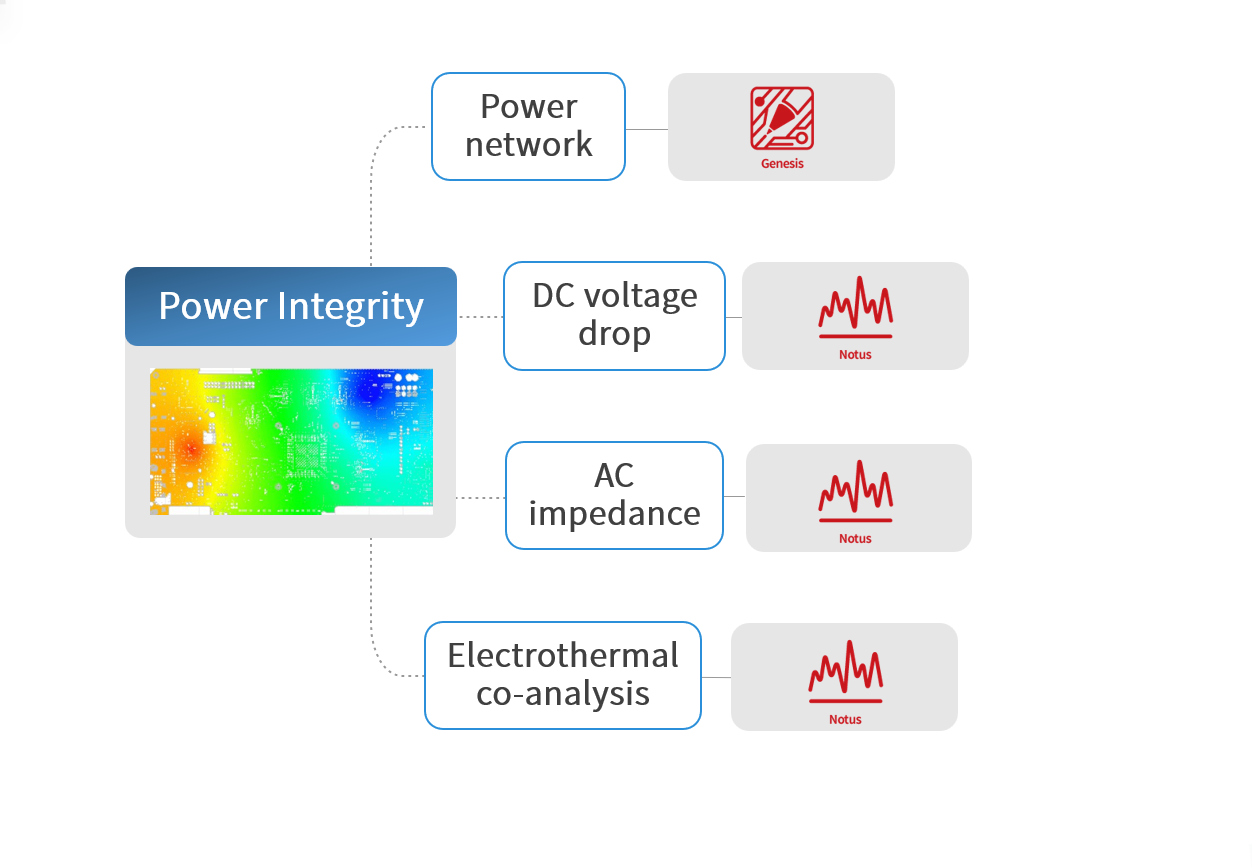
Power Integrity
Background

Power Integrity is used to evaluate and ensure the stability and reliability of the power system. In electronic devices, the design of the power supply network is crucial as it directly affects the performance and reliability of the device. Power integrity analysis usually involves the following aspects:
Power stability analysis: Evaluating the stability of the power system, including factors such as output voltage fluctuations, ripple, and noise. If these factors are too high or exceed the specified range, they may affect the normal operation of the device.
Overall power layout analysis: Evaluating whether the layout design of the power system is reasonable, including the routing of power lines, grounding, and shielding, etc. An unreasonable power layout may introduce interference or electromagnetic compatibility issues.
Power integrity analysis can be carried out through various engineering analysis methods and testing means, such as simulation, actual measurement, and application testing. By conducting integrity analysis on the power system, potential problems can be identified early and corresponding improvement measures can be taken to ensure the normal operation and reliability of the device.

Solution

Xpeedic's Power Integrity solution comprehensively covers the power integrity analysis of the entire PDN network from chip, package to system, including power DC analysis, power AC analysis, decoupling capacitor optimization, electrothermal co-analysis, etc., which can help designers easily carry out power integrity analysis, ensuring the reliability, stability, and safety of the electronic product power supply network. The functions are introduced as follows:
Power DC analysis is mainly used for analyzing the voltage drop, current density, and via current of the power network, with high efficiency and high precision;
Power AC analysis mainly targets the frequency domain impedance. Notus can extract the power network's frequency domain impedance and automatically optimize the capacitance based on the frequency domain impedance;
Electrothermal co-analysis: When the devices in the system are working, the devices themselves will cause a temperature rise due to thermal power consumption. At the same time, when the current flows through the conductor, the conductor will generate Joule heat, which will also cause a temperature rise. Notus provides an electrothermal co-analysis solution that can consider the impact of device heat and Joule heat simultaneously, accurately evaluating the system's temperature changes.

